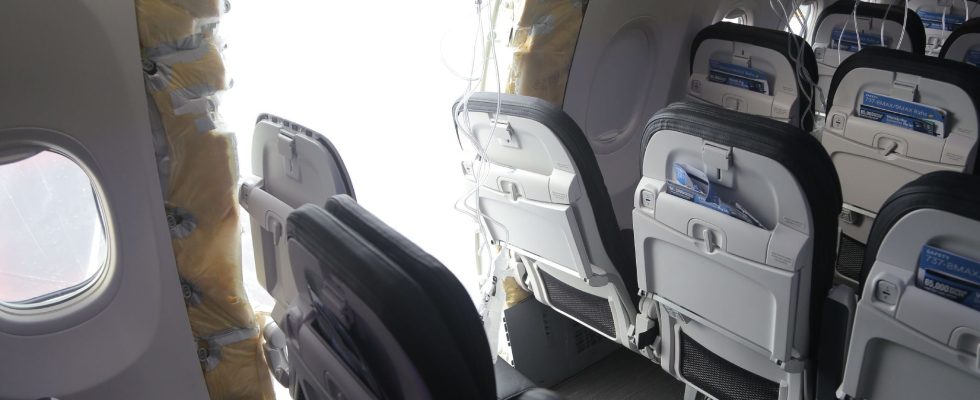A month after the incident in which a Boeing 737 Max lost a door in mid-flight, the American aircraft manufacturer is once again in the spotlight. On Sunday, February 4, the company made some compliance issues public. Flaws that appear on its flagship model: the famous 737.
“On Thursday, a supplier reported to us a non-compliance problem on certain 737 fuselages,” explained Stan Deal, in charge of Boeing’s commercial aviation branch, in a message sent to employees on Sunday afternoon and sent to the press.
Non-compliance without risk
The supplier, whose identity was not revealed by Boeing, reportedly noted that “two holes may not have been drilled exactly to our specifications,” Stan Deal said. According to the Reuters news agency, it was the company Spirit AeroSystems, a supplier to Boeing, which reported the defect spotted on 22 of the 47 aircraft inspected to date.
A defect which, according to Boeing, is safe for aircraft in service. “All 737s can continue to operate in complete safety,” assured Stan Deal, specifying that the group nevertheless estimated that it would have to “rework on around fifty undelivered aircraft”. And to argue: “While this issue may delay some 737 deliveries in the short term, it is our only option given our commitment to delivering perfect aircraft every time.”
These revelations come in a context of distrust towards the American manufacturer. Reservations crystallized after the fatal accidents which heavily tarnished the reputation of the 737. Two crashes occurred in October 2018 and March 2019, following which all Boeing 737 Max were temporarily grounded by the international aviation authorities. And which remain, to this day, the most expensive disasters for a company, according to the American channel CNN. Unsurprisingly, the checks carried out after the accidents had the effect of delaying the delivery of devices ordered by the companies.
Defects in the chain, delivery delays
Delays which accumulate as manufacturing defects multiply. Because to the disasters are added production problems which mainly affect its favorite model. At the end of August, the aeronautics giant identified a new defect: “Fixing holes that do not comply with our specifications in the rear pressurization bulkhead of certain 737 aircraft.” The controls, considered essential, once again delay the order circuit.
But while deliveries are starting to resume at a good pace at the end of 2023, a new incident disrupts Boeing’s plans On January 4, under the panicked eye of passengers on board the Portland-Ontario flight, one of the gates of the aircraft belonging to Alaska Airlines was torn off in mid-flight. An accident believed to be due to loose bolts, and which forced the aircraft to land just twenty minutes after takeoff.
Already at the end of December, the American civil aviation regulatory agency (FAA) warned of a risk of loose bolts on several Boeing planes, calling on airlines to check the status of the controls for their aircraft. It was the aircraft manufacturer itself who reported the defect, after noting the presence of an “incorrectly tightened nut” on an aircraft which had not yet been delivered.
